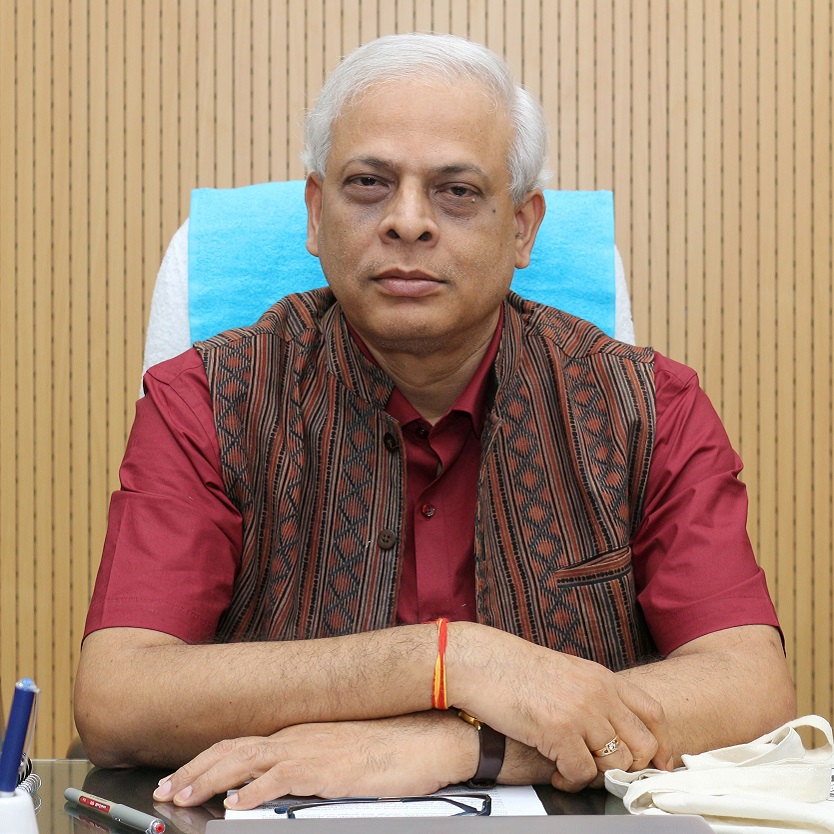Introduction

The Center for Research in Engineering Advanced Materials for Sustainability (CREAMS) will be a pioneering initiative designed to focus on the scalable and continuous production of advanced materials tailored for renewable energy applications, particularly biofuels and other sustainable fuels. Rooted in the strong foundation of the Department of Chemical Engineering and Technology at IIT (BHU), CREAMS aims to uphold the department’s proud legacy by addressing one of the most critical challenges of our time—developing sustainable energy solutions while ensuring industrial scalability. This center is unique as it integrates chemical engineering principles with cutting-edge materials research to bridge the gap between laboratory innovation and industrial adoption. CREAMS also honors the vision of IIT (BHU) for creating impactful, industry-relevant research that leaves a lasting societal legacy.
Strengthening Alumni-Driven Impact:
For decades, IIT (BHU) Chemical Engineering alumni have contributed to solving India’s energy and industrial challenges. CREAMS seeks to honor this legacy by becoming a center that not only reflects their contributions but also provides a platform for the next generation of engineers to follow in their footsteps. By supporting this initiative, alumni will help create a transformative center that embodies their values and commitment to nation-building, leaving a legacy that benefits society and future alumni alike.
Estimated Timeline for the Project
- Year 1: Develop infrastructure, procure equipment for material synthesis and testing, and recruit staff.
- Years 2-3: Conduct research on scalable material production and pilot-scale biofuel synthesis.
- Years 4-5: Establish testing facilities, collaborate with industries, and demonstrate industrial-scale production and applications.
Expected Impact
CREAMS differentiates itself from other material research centers through its unique objectives and industrial focus:
- Scalable Material Production: Employ chemical reaction engineering to develop advanced catalysts, nanostructures, and functional materials for large-scale renewable
fuel production. - Renewable Energy Applications: Specialize in biofuels (ethanol, biodiesel, biohydrogen) and other sustainable fuels, ensuring that these energy sources are clean,
efficient, and economically viable. - Testing and Validation: Establish state-of-the-art facilities to test and validate renewable fuels for performance, efficiency, and emissions under real-world
conditions. - Chemical Engineering Focus: Unlike traditional material centers, CREAMS emphasizes continuous processes and modular technologies for seamless industrial
integration.
This focus on scalability, real-world testing, and chemical engineering-driven solutions ensures that CREAMS stands apart from other materials research initiatives.
Objectives of CREAMS:
- Scalable Material Synthesis for Renewable Fuels:
- Develop advanced catalysts and materials for biofuel production, including biomass-to-biofuel conversion and CO₂ reduction to fuels.
- Ensure these processes are adaptable to industrial-scale production through continuous reactor systems. - Advanced Testing of Renewable Fuels:
- Build facilities to test biofuels for their energy density, combustion efficiency, and emissions, ensuring compliance with global standards.
- Focus on performance testing in engines and industrial systems to demonstrate real-world applicability. - Circular Economy Solutions:
- Utilize chemical engineering techniques to convert industrial and agricultural waste into valuable biofuels and chemicals, supporting sustainable development. - Fostering Industry Collaborations and Alumni Engagement:
- Establish partnerships with industries and alumni for collaborative projects, technology transfer, and mentorship opportunities.
- Offer naming opportunities and dedicated programs to recognize alumni contributions to this transformative initiative. - Training and Knowledge Dissemination:
- Train students and professionals in advanced materials and chemical engineering techniques, ensuring the continuity of IIT (BHU)’s legacy of excellence.
Expected Impact of CREAMS:
- Industrial Relevance: Deliver industry-ready technologies for renewable fuel production, providing scalable and efficient solutions for energy challenges.
- Global Leadership: Position IIT (BHU) as a global leader in chemical engineering-driven materials research, with a focus on renewable energy.
- Societal Benefits: Address India’s energy demands, reduce dependence on fossil fuels, and contribute to environmental sustainability.
- Alumni Legacy: Engage alumni in building a center that reflects their contributions to chemical engineering, leaving a lasting impact on society and future generations.
- Differentiation: Unlike other centers, CREAMS focuses exclusively on scalable production, renewable fuel applications, and real-world testing, setting it apart
from broader materials research initiatives.



















